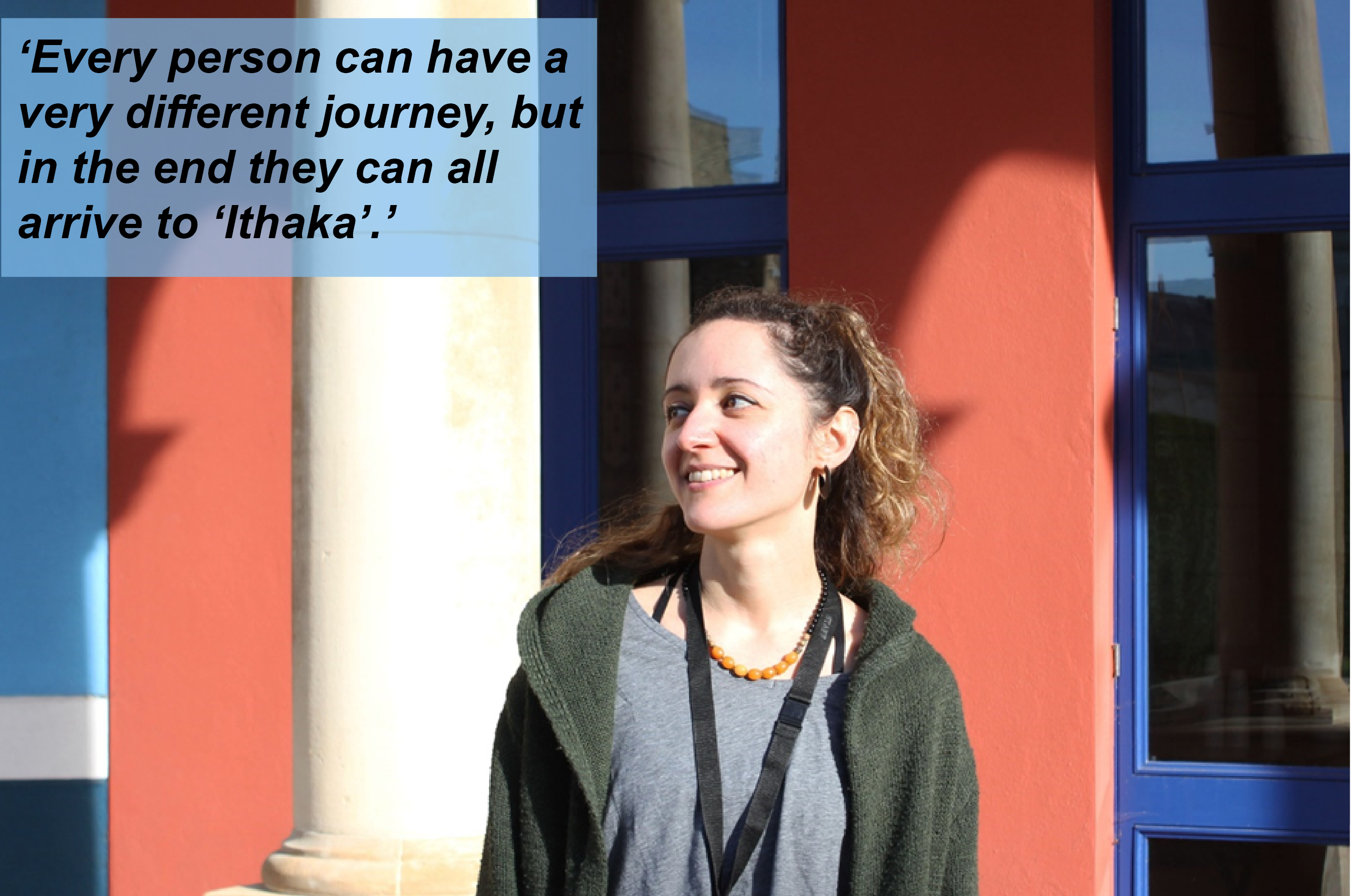An Interview with Dr Vasiliki Mavridou
Photo credit: Dr Sara Pensa
Dr Vasiliki (Vasso) Mavridou holds a highly prised Leverhulme/ Isaac Newton Trust Early Career post-doctoral Fellowship within Dr Paul Miller at the Department of Pharmacology. Vasso studied Biology at the Aristotle University of Thessaloniki, Greece before completing her PhD on mitochondrial transport proteins at the MRC Mitochondrial Biology Unit at the University of Cambridge
Who are you and what do you work on?
My name is Vasiliki (Vasso) Mavridou and I am a post-doc in the Miller lab. My project focuses on the structure and function (modulation) of ion channels. The main target is a voltage-gated ion channel that is crucial for nociception, but I also work on ligand-gated ion channels that constitute the principal mediators of inhibitory neurotransmission.
What do you love about your job?
I really like that I am studying the actual physical/ biological world, which I find fascinating!
How/why did your research lead you to Cambridge?
During my undergraduate studies, I did an Erasmus+ placement in the lab of Prof Edmund Kunji at the MRC Mitochondrial Biology Unit, University of Cambridge. During this internship, I learnt a lot, I had very good mentors and my project went well, so at the end of it, Edmund encouraged me to apply for a PhD position and I completed my PhD in his lab.
Other than science what is most important for you in life?
My partner and my family are very important, as well as having some time for hobbies.
Do you have any advice to early-career women scientists?
I am an early career scientist myself, so I don’t have any advice that comes from gained experience. I could just say that as with any goal, there will definitely be many obstacles, but we need to persevere and learn from every experience. Furthermore, I don’t think that we need to follow one specific path to succeed. Every person can have a very different journey, but in the end they can all arrive to ‘Ithaka’.
What/Who first sparked your interest in science?
I think the very first thing that impressed me was during a school visit at the Department of Chemistry when I was 9 years old. Someone was changing the colour of some solutions (some acid-base neutralisation reaction I guess) and I was mesmerised!
When did you decide to become a research scientist?
I don’t think that there was a clear point when I made a straight, conscious decision. Things evolved gradually. I really liked my undergraduate studies, so I decided to do a PhD. Then I really liked my PhD and decided to keep doing something similar.
Why is science fun?
Because you can learn new things and because you are able to really test your hypotheses via experiments (at least in Biological Sciences). Then you can start changing some variables and see what happens.
If you were to choose a laboratory superpower, what would it be?
I would like to have ‘molecular eyes’, to be able to see what is actually happening inside my tubes.
How do you relax?
I relax by listening to (and a bit of playing) music, by going to the gym and by reading nice books.
How would you like to be remembered?
I would like to be remembered as someone kind and helpful, who made people feel comfortable to express themselves and helped them to evolve. Also, if I could have everything, as someone knowledgeable, at least on my subject.

